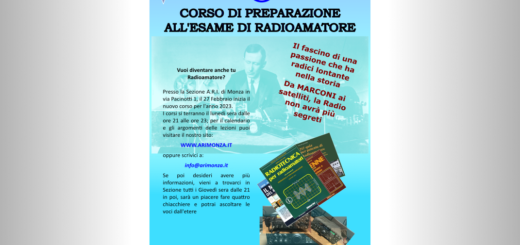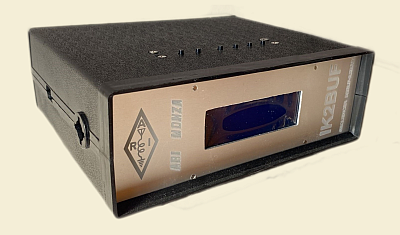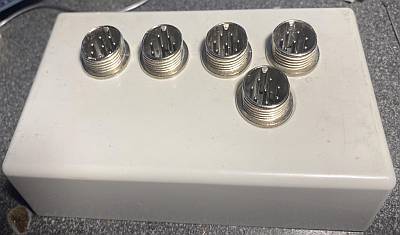contatto 27 giugno
An International Space Station school contact has been planned for Alexander Gerst KF5ONO with two schools in Germany:
– Werner Heisenberg Gymnasium, Leverkusen
– Schickhardt Gymnasium, Herrenberg.
The event is scheduled Wednesday 27 June 2018 at approximately 10:32 UTC.
The conversation will be conducted in German.
The contact will be a direct operated by DL0IL and DL0GH.
The downlink signals will be audible in parts of Europe.
School Information:
Werner-Heisenberg-Gymnasium
The Werner Heisenberg Gymnasium in Leverkusen was among the first schools that joined the national MINT EC network of excellence schools in science and is an IB world school offering its students the International Baccalaureate (IB).
Another focus is set on language in our French German bilingual program. Care has been taken that both degrees may be pursued simultaneously as we have found that one talent is often connected to the other.
The WHG mission is: To build and develop a social community, to strengthen personality and character, and to enjoy and succeed in learning.
In STEM classes, students focus on core subjects like mathematics, physics, chemistry and biology with additional optional courses in astronomy and computer science. In 8th and 9th grade, students take science classes covering interdisciplinary subjects with a special application focus. In small groups, students define and research their own projects, which they present to a jury from local industry during a science fair at the end of 9th grade.
In addition, there is a diverse choice of project courses (AGs): Our students may join the Jazz band or the Theater AG, which are well-known for their performances. The Astronomy AG has constructed a large, scaled version of the solar system in the schoolyard and has specialized in moon and planet photography.
In the French bilingual class, more lessons are allocated to French, and history, geography and politics are taught in French. With their high school diplomas, students in this branch are granted access to French universities.
Complementary to science and language education, WHG also focuses on social education: In 9th grade, students participate in a mandatory practical training at a social organization (kindergarten, hospital, retirement or nursing home, work with handicapped or homeless people) to help develop social responsibility.
Schickhardt Gymnasium
Our school, the Schickhardt Gymnasium, is located in Herrenberg which is a small city south of Stuttgart.
This is in the heart of a region known nationally and internationally for technology (i. e. automobiles) and
IT advancement but also for its old universities and its history.
Beyond the regular subjects like Maths, German,
English, P.E., Arts, and social sciences, this is reflected in the profiles our school offers from which the students can choose their focus. On one hand, the language profile with French, Spanish and Latin as options. On the other hand, we have the profile of natural sciences and technology, i.e. NwT (science and technology), Biology, Physics, IT and Chemistry. Both profiles are also visible in the clubs and exchanges which are offered: Aerospace Lab, Robotics, ISS, Theatre, Musical, Print and the KuCa (which organizes cultural events – among others a presentation by Professor Dr. Heinz Voggenreiter), among others. Students are also dedicated to social projects, e.g. Fairtrade, Model United Nations, schools against racism and the aid-organization Casa Alianza. Exchanges go to Sweden, France, the USA, Botswana, and Hungary.
This secondary school with about 750 students and 70 teachers is excited to be taking part in the ARISS program.
The project team consists of members of different age levels motivated by their interests in outer space, technology, space travel, journalism, and many other talents which are contributing to making this project a reality.
Participants will ask as many of the following questions as time allows:
1. Yasna (11): How does the human body change in outer space?
2. Victor (11): Does your biorhythm change in space and can you sleep well?
3. Eva (17): Is it true that people cannot belch in space?
4. Tessa (11): Which everyday commodities and habits do you miss most?
5. Max (14): Is it possible to light a candle in the space station, and if so, what does it look like?
6. Roman (16): Do you see the fireworks on New Year’s Eve on the ISS?
7. Lena (16): Do you think that the idea of populating the Moon and Mars in near future is realistic?
8. Lorenz (16): Have you ever lost anything outside the ISS?
9. Max (17): What do you think about the disposal of waste, e. g. electronic scrap, in outer space?
10. Sven (17): What would you ask an astronaut if you were not an astronaut yourself?
11. Charlotte (13): How clean is the air inside the ISS? Do you need to do dusting?
12. David (13): What did your assistant CIMON surprise you the most with?
13. Linda (11): What does it feel like to go on a spacewalk?
14. Lorent (11): What was your most exceptional experience in outer space?
15. Anna (18): How difficult is it to readjust to life on earth after a long stay in space?
16. Maurice (15): Which spaceship would you take to fly to the ISS if you had the choice between the time-tested Soyuz capsule or the new Dragon V2?
17. Max (14): How fast is your internet connection on the ISS?
18. Lukas (15): What would happen in case of an acute medical emergency, e. g. appendicitis?
19. Anne (17): Is it possible to fly directly to the moon from the ISS?
20. Benjamin (9): What is your favorite food on the space station?
1. Yasna (11): Wie veraendert sich der menschliche Koerper im Weltall?
2. Victor (11): Veraendert sich auch Ihr Biorhythmus im All und koennen Sie gut schlafen?
3. Eva (17): Stimmt es, dass man im Weltraum nicht ruelpsen kann?
4. Tessa (11): Welche alltaeglichen Dinge und Gewohnheiten vermissen Sie am meisten?
5. Max (14): Kann man eine Kerze in der Raumstation anzünden, wenn ja wie sieht sie dann aus?
6. Roman (16): Sieht man an Silvester das Feuerwerk von der ISS aus?
7. Lena (16): Finden Sie die Idee Mond und Mars in naher Zukunft zu besiedeln realistisch?
8. Lorenz (16): Haben Sie schon einmal etwas ausserhalb der ISS verloren?
9. Max (17): Was halten Sie von der Entsorgung von Muell, z. B. von Elektroschrott, im Weltraum?
10. Sven (17): Was wuerden Sie einen Astronauten fragen, wenn Sie selber nicht Astronaut waeren?
11. Charlotte (13): Wie sauber ist die Luft auf der ISS, muss man Staubwischen?
12. David (13): Womit hat Ihr Assistent CIMON Sie am meisten ueberrascht?
13. Linda (11): Wie fuehlt es sich an, einen Raumspaziergang zu machen?
14. Lorent (11): Was war das Außergewoehnlichste, was sie im All erlebt haben?
15. Anna (18): Wie schwer ist es, sich nach einem laengeren Aufenthalt im All wieder an das Leben auf der Erde zu gewoehnen?
16. Maurice (15): Wenn Sie die Wahl haetten zwischen der bewaehrten Sojus-Kapsel oder der neuen Dragon-V2, welche wuerden Sie fuer einen Flug zur ISS bevorzugen?
17. Max (14): Wie schnell ist Ihr Internetanschluss auf der ISS?
18. Lukas (15): Was wuerde bei einem akuten medizinischen Notfall, z. B. einer Blinddarmentzuendung, passieren?
19. Anne (17): Kann man direkt von der ISS aus zum Mond fliegen?
20. Benjamin (9): Was ist Ihr Lieblingsessen auf der Raumstation?
About ARISS:
Amateur Radio on the International Space Station (ARISS) is a cooperative venture of international amateur radio societies and the space agencies that support the International Space Station: NASA, Russian Space Agency, ESA, JAXA, and CSA. The US Center for the Advancement of Science in Space (CASIS) and the National Aeronautics and Space Administration (NASA) provide ARISS special support.
ARISS offers an opportunity for students to experience the excitement of Amateur Radio by talking directly with crewmembers on board the International Space Station. Teachers, parents and communities see, first hand, how Amateur Radio and crewmembers on ISS can energize youngsters’ interest in science, technology, and learning.






